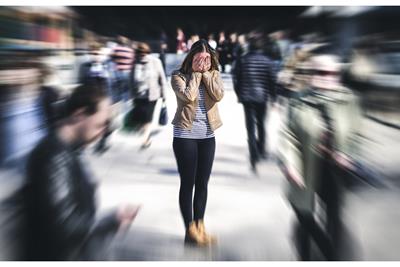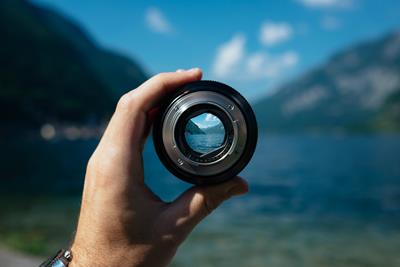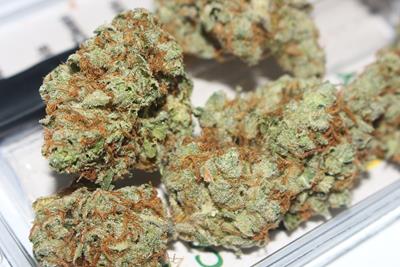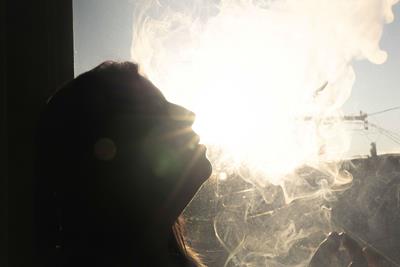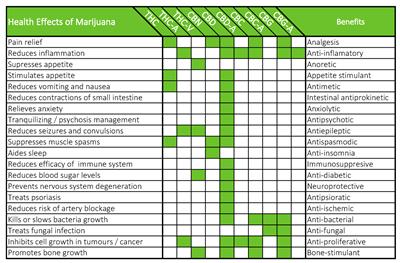
Monday March 2, 2015
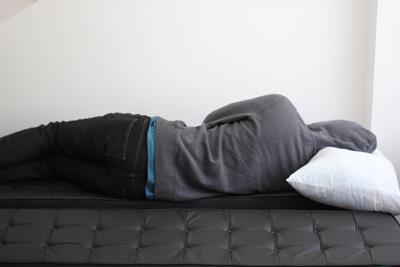 Health/Science
Health/Science
Cannabis is commonly used as a sleep aid because it has been shown to both reduce the onset of sleep and increase its over-all duration without causing the user to feel excessively groggy they next day. However, when excessive cannabis use is ceased, users often report difficulty sleeping and more vivid dreams when they do. This implies a correlation between cannabis use and sleep patterns, but the details are still vague.
To understand more about how marijuana can affect sleep, it's important to understand a few basic facts about the spectrum of cannabis strains. On one end of the spectrum are Sativa-dominant strains whose characteristic tend to be more uplifting, creative and energetic. On the other end of the spectrum are Indicas, characteristics of which tend to be more relaxing and analgesic.
While heavy Indica strains, such as Afghani or Granddanny Purp will work wonders for insomnia, other strains like a Durban Poison or Jack Herer will likely have the opposite effect. Anyone concerned about falling asleep should therefore avoid sativa-heavy strains at least a few hours prior to bedtime.
Once it's time to hit the sack, marijuana users can expect to toss and turn for less time, and stay asleep longer once they're there. What happens during that time however, is a bit more complex.
Marijuana and the stages of sleep
Pot does more than just help a person fall asleep. In fact, the whole sleep process is very involved, cycling between the different stages throughout the night, each with their own health benefits. Marijuana can affect both the duration and intensity of each of these stages.
The first stage of sleep, which is the initial time it takes to fall asleep to begin with, is a time for the body to transition into a comfortable sleep. This stage usually lasts for an average of seven minutes, but could take longer if someone is experiencing stress or pain. Since marijuana has been shown to relieve both of those symptoms, it seems only natural that it would promote relaxation in addition to its sedative effects.
The second stage is that of light sleep, during which the sleeper is easily woken. This sleep cycle seems to be the least affected by cannabis.
Stages three and four are often referred to as a single cycle, and involve what is called slow wave sleep (SWS). This stage, which seems to be the most restorative of the four phases, is lengthened as a result of cannabis use. This may contribute to an increased reduction of the plaque, beta-amyloid, which is commonly associated with Alzheimer's Disease and Dementia, though more research is needed to be sure.
Consuming marijuana reduces REM sleep
The final stage of sleep is REM sleep, during which dreams occur. Marijuana reduces REM sleep, thus greatly reducing the occurrence of dreaming. Though we are unsure why, it is possible that this is because of marijuana's tendency to blunt dopamine response. Dopamine, which is responsible for directing our attention, also plays a valuable role during sleep by creating dreams (and helping you pay attention to them). This not only helps explain why we tend not to dream when stoned, but why ceasing cannabis use tends to make dreams return with a vengeance; users gain sensitivity to dopamine again, sometimes at an unsettling level.
The purpose of REM sleep, however, is still up for debate. Some speculate that REM sleep helps us regulate neurotransmitter levels and body temperature, while others suggest that the purpose is more closely related to memory retention. A third theory suggests that dreams could be our body's way of keeping our brain busy while the clean-up crew is at work flushing out toxins. Whatever the reason for dreams, marijuana users seem to have fewer and less recollection of them later, indicating that the natural sleep cycle is, in fact, disturbed by regular marijuana use and that cessation of cannabis use could have a rebound effect on dreams.
Marijuana may help treat sleep apnea
While the lack of dreams may seem like a definite draw-back to some, keep in mind that it is during REM sleep that most sleep disturbances associated with sleep apnea occur. Sleep apnea, a disorder characterized by interrupted breathing patterns during sleep, affects millions of Americans resulting a overly sleepy (and thus dangerous) society. A 2002 study, however, suggests that cannabinoids could offer a "potent suppression for sleep-related apnea".
According to a 2013 study published in Frontiers in Psychiatry, "...Δ9-TetraHydroCannabinol (Δ9THC) stabilizes autonomic output during sleep, reduces spontaneous sleep-disordered breathing, and blocks serotonin-induced exacerbation of sleep apnea." Building off of this, the researchers went on to find that dronabinol, a man-made form of THC, did, in fact, improve sleeping conditions for 17 adults suffering from obstructive sleep apnea without reducing quality of sleep. Though the study was small, the implications of this are huge.
Because sleep apnea reduces sleep efficiency, over 22 million Americans who suffer from the disease notoriously work, drive and communicate while sleep deprived. This can result in lost productivity at work, increased hazards on the road and a breakdown of interpersonal relationships. If THC (synthetic or not) can help treat the disease, then millions of Americans may finally be able to sleep well again.
Marijuana withdraw and problems sleeping
Many heavy marijuana users report difficulty sleeping once they've ceased use. These problems include difficulty falling asleep, difficulty staying asleep and the phenomenon known as REM rebound or very vivid (often anxiety-inducing) dreams. This are typical withdraw symptoms (which closely mimic nicotine withdraw) and can last only a few days to as many as six or seven weeks.
Smoking a bowl at the end of the day is not an uncommon way to relax and ultimately sleep. But regular use of cannabis can affect one's sleep cycle in a number of ways, both good and bad.
Does marijuana affect your sleeping patterns? Would you suggest THC pills to someone suffering from sleep apnea? We'd love to hear about it.



